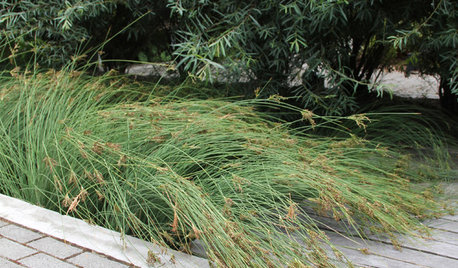A great resource on vermicomposting
Gerris2 (Joseph Delaware Zone 7a)
11 years ago
Related Stories

HOUZZ TOURSMy Houzz: 2 Tools + 1 Resourceful Guy = Lots of Great ‘New’ Furniture
With scrap wood and a hands-on attitude, a San Francisco renter on a tight budget furnishes his bedroom and more
Full Story
HOUZZ TOURSMy Houzz: Resourceful and Inviting in Denver
Frugal fixes, delightful murals and roll-up-your-sleeves energy override a modest budget in a mountain-town home
Full Story
GARDENING GUIDESProtect a Precious Resource With a Rain Garden
Promote pure water and a beautiful landscape with a garden design that makes the most of the rain
Full Story
GREEN BUILDINGMeet a New Resource-Saving Prefab Design
Energy efficiency and a resourceful layout combine with ecofriendly materials in this noteworthy prototype for modular homes
Full Story
HOUZZ TOURSHouzz Tour: Creative Resourcefulness in a 1970s Ranch
Combine design dexterity and abundant creativity with patience, and what do you get? A home awash in personality and style
Full Story
HOUZZ TOURSMy Houzz: Patience and Resourcefulness Pay Off in Dallas
Unhurried remodeling lets a growing family stay within budget and get exactly the look they want for their Texas home
Full Story
HOUZZ TOURSHouzz Tour: Resourcefulness Shows in a Rugged Montana Cabin
Reclaimed materials and a simple plan help a carpenter build his own inviting, energy-efficient home
Full Story
HOUZZ TOURSMy Houzz: Resourcefulness Works for a Midcentury Remodel
Reclaimed wood floors, thrifty finds and plenty of patience pay off for a budget-minded family in Dallas
Full Story
KITCHEN DESIGNYour Essential Resource for a Healthy, Ecofriendly Kitchen
Find the Houzz guides to choosing earth-friendly kitchen counters, cabinets, appliances, lighting, flooring and tile — all in one place
Full Story
DECORATING GUIDESShow Your Resourceful Side With Vintage Coastal Style
Reused pieces anchor this soothing, casual design style, rounded out with soft fabrics and weathered materials
Full Story






buckstarchaser
equinoxequinox
Related Professionals
Piqua Landscape Architects & Landscape Designers · Athens Landscape Contractors · Edwardsville Landscape Contractors · Forest Hills Landscape Contractors · North Plainfield Landscape Contractors · Parker Landscape Contractors · Wentzville Landscape Contractors · San Pablo Landscape Contractors · Alabaster General Contractors · Bel Air General Contractors · Forest Grove General Contractors · Gloucester City General Contractors · Medway General Contractors · Midlothian General Contractors · Milford Mill General Contractorsbuckstarchaser
Gerris2 (Joseph Delaware Zone 7a)Original Author